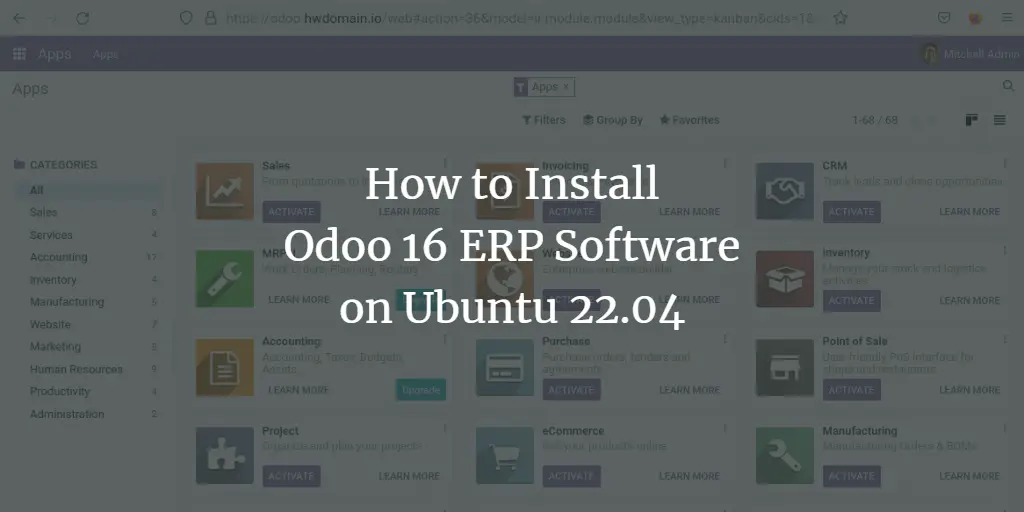Hi,
I have a server (debian 11) with apache+nginx hosting multiple domains/sites and wanted to install Odoo.
Followed the guides

 www.odoo.com
www.odoo.com
and got stuck on nginx configuration setting it up.
how can enable odoo to be accessible under server IP/hostname:8069 or odoo.server.com?
I have a server (debian 11) with apache+nginx hosting multiple domains/sites and wanted to install Odoo.
Followed the guides

How to Install Odoo 16 ERP Software on Ubuntu 22.04
Odoo (formerly known as OpenERP) is a self-hosted suite of over 10,000 open Odoo is a free and open-source ERP solution for multiple types of business...
www.howtoforge.com
Installing Odoo — Odoo 16.0 documentation
and got stuck on nginx configuration setting it up.
how can enable odoo to be accessible under server IP/hostname:8069 or odoo.server.com?